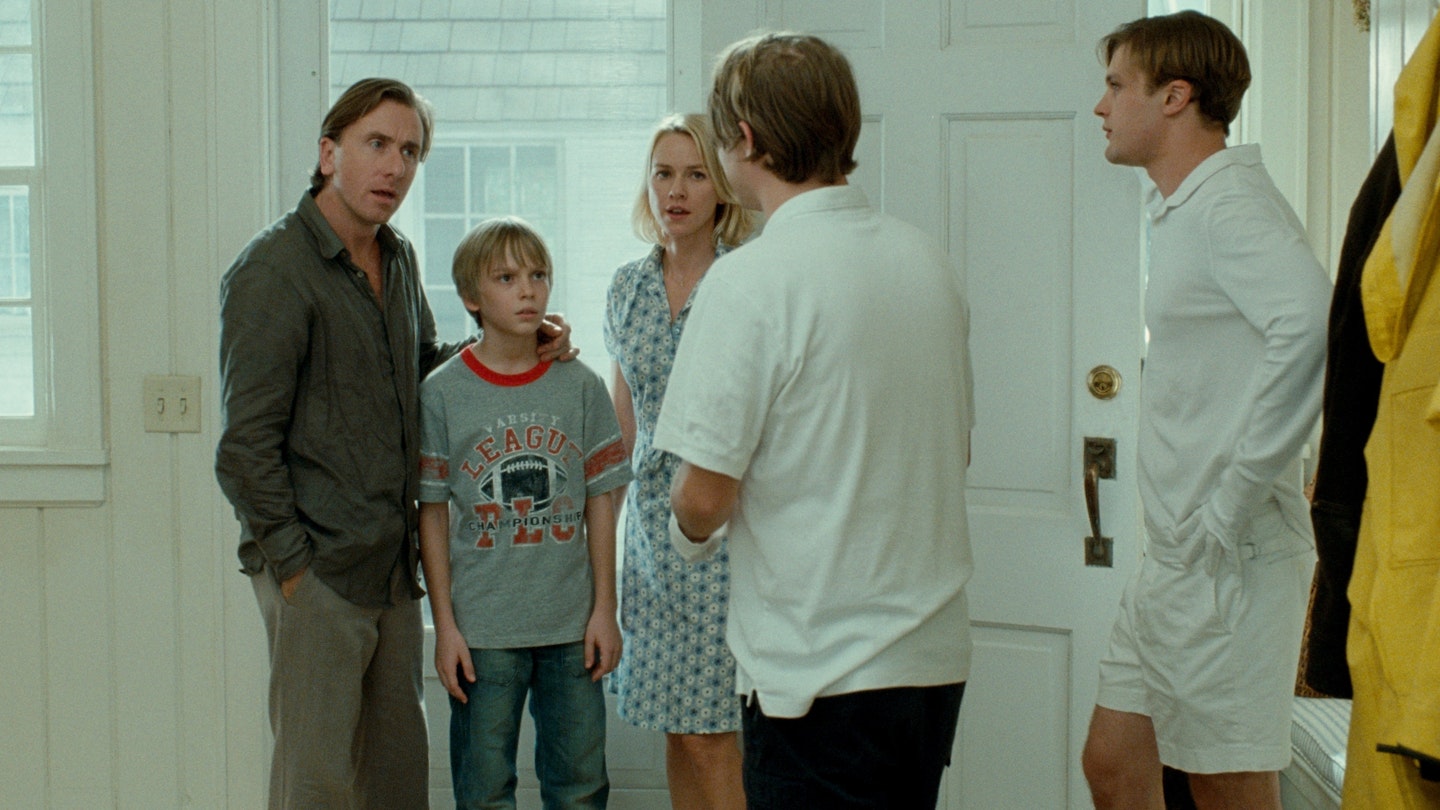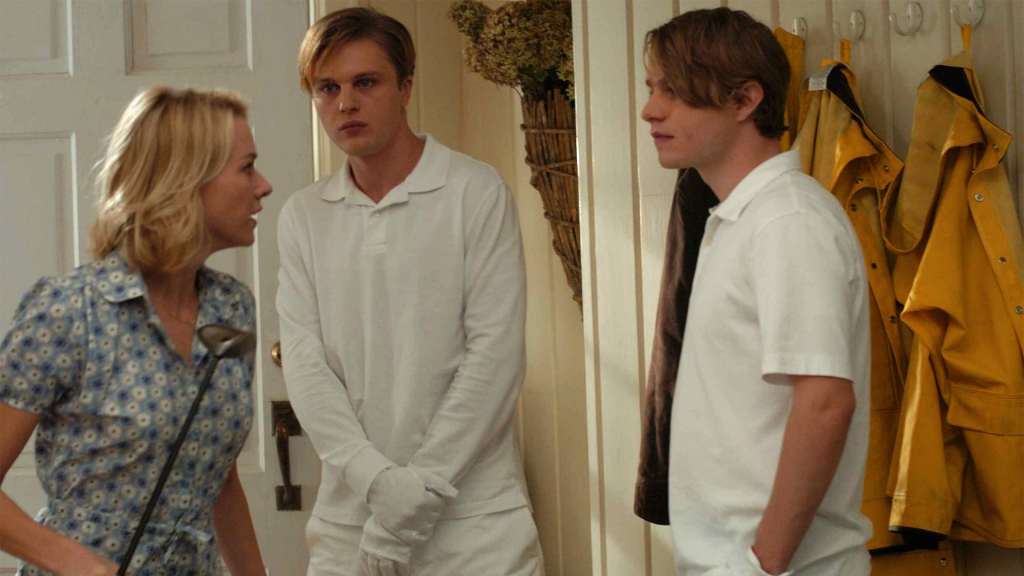Funny Games (2008), directed by Michael Haneke, is not your typical home-invasion thriller. It's a bold, disturbing, and deliberately uncomfortable film that breaks the fourth wall, challenges audience expectations, and forces viewers to confront their own complicity in watching violence unfold. A shot-for-shot English-language remake of Haneke’s own 1997 Austrian film, it stars Naomi Watts, Tim Roth, Michael Pitt, and Brady Corbet in a cold and calculated psychological assault on both its characters and the viewer.

The story is deceptively simple: a well-off family—George, Ann, and their young son Georgie—arrive at their lakeside vacation home for a relaxing weekend. Shortly after settling in, two polite but unsettling young men, Peter and Paul, show up asking for eggs. What follows is a slow descent into horror as the men hold the family hostage, playing sadistic games under a chilling facade of civility and control.

What makes Funny Games so unique is how it refuses to deliver what most audiences expect from a horror or thriller film. There’s no heroic rescue, no satisfying revenge, and no sensationalized gore. Instead, Haneke turns the camera back on us. Michael Pitt’s character often speaks directly to the viewer, acknowledging that this is a performance—a cruel game where the real targets are not just the characters, but the audience’s desire for entertainment through suffering.

Naomi Watts delivers a harrowing performance as Ann, a mother pushed to emotional and physical extremes. Tim Roth plays George with quiet vulnerability, portraying a man completely unprepared for the raw cruelty he faces. But it's Pitt and Corbet, as the young tormentors, who truly unsettle. Their politeness, charm, and detached demeanor make the violence all the more terrifying.

Haneke’s direction is meticulous. Long takes, off-screen violence, and a refusal to sensationalize create a stifling, suffocating tension. Every moment is calculated to provoke, not to thrill. The film isn’t trying to scare you—it’s trying to disturb you, to question why we watch, and what we expect from films that depict violence.
Funny Games is not an easy film to watch—and it’s not supposed to be. It's a brutal, brilliant experiment in psychological horror that forces the viewer to reckon with their own expectations. It doesn’t offer catharsis, only reflection. For those willing to endure its unflinching gaze, it’s one of the most thought-provoking horror films of the 21st century.
-1751603065-q80.webp)


